Death Anniversary of John Hugh Barrow (12-xi-1890 14-v-1943)
From chesscomposers.com :
“John Barrow composed direct mates and helpmates.”
We remember Mary Rudge who passed away one hundred and one years this day on Saturday, 22-xi-1919.
She was born in Leominster, Herefordshire on February 6th, 1842. Her father was Henry Rudge (born 1794 in Gloucestershire) who was a surgeon and General Practitioner. Her mother was Eliza Rudge (née Barrett) who was born in Ledbury, Herefordshire in 1802.
Mary was part of a typically large household and according to the 1851 census she had sisters Sarah (23), Caroline (18), Emily H (12), brothers Henry (14) and Alfred (10). Assisting Henry with medical matters was Wiliam S Boyce and acting as a “General Servant” was Thomas Rotheroe (18). Their address is given as “21, Middle Marsh, Leominster, Herefordshire, England” (HR6 8UP). According to HM Land Registry : “Middlemarsh is in the Leominster North & Rural ward of Herefordshire, County of, Herefordshire, Worcestershire and Warwickshire.”
By 1861 the household had relocated to 62, Broad Street, Leominster and the servants were James Price (18) whose occupation is given as a Groom and Sarah Gardener (21) who was the House Servant.
Mary moved, “helpless from rheumatism”, at some point, to Truro and then to the British Home for Incurables, Streatham. She died in Guys Hospital, London, on 22 November 1919.
Editor of British Chess Magazine at the time of her obituary was Isaac McIntyre Brown who afforded Mary a pathetic three lines.
From Wikipedia :
“Mary Rudge (6 February 1842 in Leominster – 22 November 1919 in London) was an English chess master.
Rudge was born in Leominster, a small town in Herefordshire, England. She began playing chess in a correspondence tournament in 1872. The first mention of over the board competition is in August 1874 when she played in the second class at the Meeting of the Counties’ Chess Association at Birmingham. After the death of her father, Henry Rudge, she moved to Bristol where she started playing chess seriously.
Rudge was the first woman member of the Bristol Chess Club, which did not allow women to be members of the club until she joined in 1872. She played against Joseph Henry Blackburne, who gave a blindfold simultaneous display against ten opponents. The following year she played in another blindfold simultaneous display given by Johannes Hermann Zukertort. In March 1887 she played and drew on board six for Bristol against Bath at the Imperial Hotel in Bristol. At the beginning of 1888, Rudge played and won on board six for Bristol & Clifton against City Chess & Draughts Club. The following year, she won the Challenge Cup of Bristol & Clifton Chess Club. In 1889, she became the first woman in the world to give simultaneous chess exhibitions. She won the Ladies’ Challenge Cup at Cambridge 1890, and won the second class at the Southern Counties’ tournament at Clifton 1896.[1]”
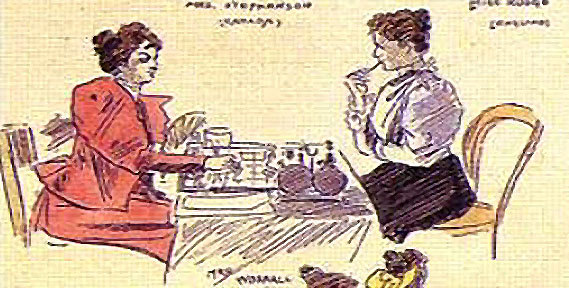
“First Women’s International Chess Congress
She was a winner of the first Women’s International Chess Congress under the management of the Ladies’ Chess Club of London in conjunction with the Women’s Chess Club of New York. Lady Newnes was president of the Tournament Committee, and Sir George Newnes, Baron Albert Salomon von Rothschild, Mr. Harry Nelson Pillsbury and some others offered prizes. The tournament was played at the Hotel Cecil in the Masonic Hall for six days, but the final rounds were decided at the Ideal Café, the headquarters of the Ladies’ Chess Club, from 22 June to 3 July 1897.[2] Miss Rudge was 55 years old and the oldest of the 20 players,[3] and had substantial experience playing chess at the time. She was a well-known English player, ranking in chess strength with the first class of the leading men’s clubs. She won the event with 18 wins and 1 draw, followed by Signorina Louisa Matilda Fagan (Italy), Miss Eliza Mary Thorold (England), Mrs. Harriet Worrall (USA), Madame Marie Bonnefin (Belgium), Mrs. F.S. Barry (Ireland), Lady Edith Margaret Thomas (England), among others.”
Here is an in-depth article about this event from Chesscafe.com
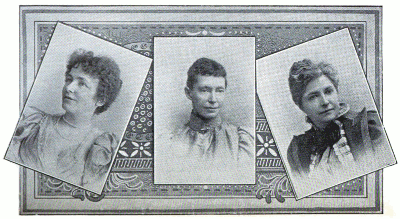
“Over the next years, she took part in various competitions, playing in Bristol and Dublin. In 1898, she played against world champion Emanuel Lasker in a simultaneous display at the Imperial Hotel. Lasker was unable to finish all the games in the time available, and Rudge’s was one of those unfinished. He conceded defeat because he would be lost with best play.”
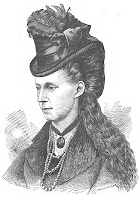
Here is an article from the Bristol Chess Times
and another from the same source.
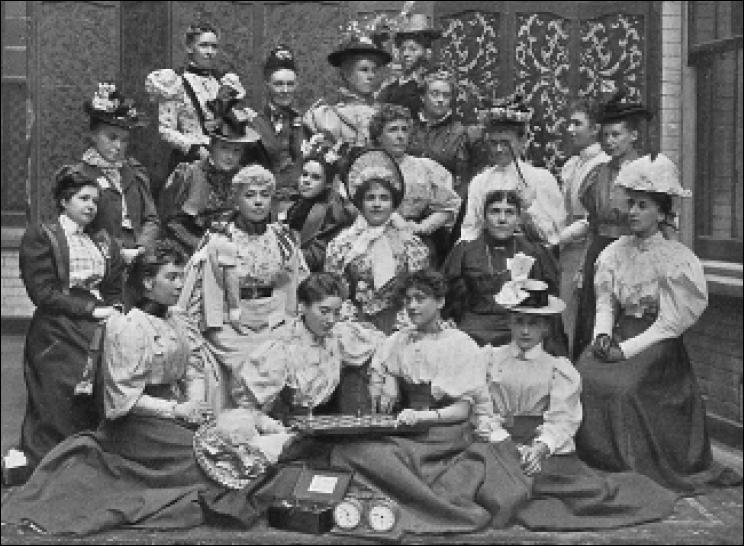
We remember Mary Rudge who passed away one hundred and one years this day on Saturday, 22-xi-1919.
She was born in Leominster, Herefordshire on February 6th, 1842. Her father was Henry Rudge (born 1794 in Gloucestershire) who was a surgeon and General Practitioner. Her mother was Eliza Rudge (née Barrett) who was born in Ledbury, Herefordshire in 1802.
Mary was part of a typically large household and according to the 1851 census she had sisters Sarah (23), Caroline (18), Emily H (12), brothers Henry (14) and Alfred (10). Assisting Henry with medical matters was Wiliam S Boyce and acting as a “General Servant” was Thomas Rotheroe (18). Their address is given as “21, Middle Marsh, Leominster, Herefordshire, England” (HR6 8UP). According to HM Land Registry : “Middlemarsh is in the Leominster North & Rural ward of Herefordshire, County of, Herefordshire, Worcestershire and Warwickshire.”
By 1861 the household had relocated to 62, Broad Street, Leominster and the servants were James Price (18) whose occupation is given as a Groom and Sarah Gardener (21) who was the House Servant.
Mary moved, “helpless from rheumatism”, at some point, to Truro and then to the British Home for Incurables, Streatham. She died in Guys Hospital, London, on 22 November 1919.
Editor of British Chess Magazine at the time of her obituary was Isaac McIntyre Brown who afforded Mary a pathetic three lines.
From Wikipedia :
“Mary Rudge (6 February 1842 in Leominster – 22 November 1919 in London) was an English chess master.
Rudge was born in Leominster, a small town in Herefordshire, England. She began playing chess in a correspondence tournament in 1872. The first mention of over the board competition is in August 1874 when she played in the second class at the Meeting of the Counties’ Chess Association at Birmingham. After the death of her father, Henry Rudge, she moved to Bristol where she started playing chess seriously.
Rudge was the first woman member of the Bristol Chess Club, which did not allow women to be members of the club until she joined in 1872. She played against Joseph Henry Blackburne, who gave a blindfold simultaneous display against ten opponents. The following year she played in another blindfold simultaneous display given by Johannes Hermann Zukertort. In March 1887 she played and drew on board six for Bristol against Bath at the Imperial Hotel in Bristol. At the beginning of 1888, Rudge played and won on board six for Bristol & Clifton against City Chess & Draughts Club. The following year, she won the Challenge Cup of Bristol & Clifton Chess Club. In 1889, she became the first woman in the world to give simultaneous chess exhibitions. She won the Ladies’ Challenge Cup at Cambridge 1890, and won the second class at the Southern Counties’ tournament at Clifton 1896.[1]”

“First Women’s International Chess Congress
She was a winner of the first Women’s International Chess Congress under the management of the Ladies’ Chess Club of London in conjunction with the Women’s Chess Club of New York. Lady Newnes was president of the Tournament Committee, and Sir George Newnes, Baron Albert Salomon von Rothschild, Mr. Harry Nelson Pillsbury and some others offered prizes. The tournament was played at the Hotel Cecil in the Masonic Hall for six days, but the final rounds were decided at the Ideal Café, the headquarters of the Ladies’ Chess Club, from 22 June to 3 July 1897.[2] Miss Rudge was 55 years old and the oldest of the 20 players,[3] and had substantial experience playing chess at the time. She was a well-known English player, ranking in chess strength with the first class of the leading men’s clubs. She won the event with 18 wins and 1 draw, followed by Signorina Louisa Matilda Fagan (Italy), Miss Eliza Mary Thorold (England), Mrs. Harriet Worrall (USA), Madame Marie Bonnefin (Belgium), Mrs. F.S. Barry (Ireland), Lady Edith Margaret Thomas (England), among others.”
Here is an in-depth article about this event from Chesscafe.com

“Over the next years, she took part in various competitions, playing in Bristol and Dublin. In 1898, she played against world champion Emanuel Lasker in a simultaneous display at the Imperial Hotel. Lasker was unable to finish all the games in the time available, and Rudge’s was one of those unfinished. He conceded defeat because he would be lost with best play.”

Here is an article from the Bristol Chess Times
and another from the same source.

We remember Mary Rudge who passed away one hundred and one years this day on Saturday, 22-xi-1919.
She was born in Leominster, Herefordshire on February 6th, 1842. Her father was Henry Rudge (born 1794 in Gloucestershire) who was a surgeon and General Practitioner. Her mother was Eliza Rudge (née Barrett) who was born in Ledbury, Herefordshire in 1802.
Mary was part of a typically large household and according to the 1851 census she had sisters Sarah (23), Caroline (18), Emily H (12), brothers Henry (14) and Alfred (10). Assisting Henry with medical matters was Wiliam S Boyce and acting as a “General Servant” was Thomas Rotheroe (18). Their address is given as “21, Middle Marsh, Leominster, Herefordshire, England” (HR6 8UP). According to HM Land Registry : “Middlemarsh is in the Leominster North & Rural ward of Herefordshire, County of, Herefordshire, Worcestershire and Warwickshire.”
By 1861 the household had relocated to 62, Broad Street, Leominster and the servants were James Price (18) whose occupation is given as a Groom and Sarah Gardener (21) who was the House Servant.
Mary moved, “helpless from rheumatism”, at some point, to Truro and then to the British Home for Incurables, Streatham. She died in Guys Hospital, London, on 22 November 1919.
Editor of British Chess Magazine at the time of her obituary was Isaac McIntyre Brown who afforded Mary a pathetic three lines.
From Wikipedia :
“Mary Rudge (6 February 1842 in Leominster – 22 November 1919 in London) was an English chess master.
Rudge was born in Leominster, a small town in Herefordshire, England. She began playing chess in a correspondence tournament in 1872. The first mention of over the board competition is in August 1874 when she played in the second class at the Meeting of the Counties’ Chess Association at Birmingham. After the death of her father, Henry Rudge, she moved to Bristol where she started playing chess seriously.
Rudge was the first woman member of the Bristol Chess Club, which did not allow women to be members of the club until she joined in 1872. She played against Joseph Henry Blackburne, who gave a blindfold simultaneous display against ten opponents. The following year she played in another blindfold simultaneous display given by Johannes Hermann Zukertort. In March 1887 she played and drew on board six for Bristol against Bath at the Imperial Hotel in Bristol. At the beginning of 1888, Rudge played and won on board six for Bristol & Clifton against City Chess & Draughts Club. The following year, she won the Challenge Cup of Bristol & Clifton Chess Club. In 1889, she became the first woman in the world to give simultaneous chess exhibitions. She won the Ladies’ Challenge Cup at Cambridge 1890, and won the second class at the Southern Counties’ tournament at Clifton 1896.[1]”

“First Women’s International Chess Congress
She was a winner of the first Women’s International Chess Congress under the management of the Ladies’ Chess Club of London in conjunction with the Women’s Chess Club of New York. Lady Newnes was president of the Tournament Committee, and Sir George Newnes, Baron Albert Salomon von Rothschild, Mr. Harry Nelson Pillsbury and some others offered prizes. The tournament was played at the Hotel Cecil in the Masonic Hall for six days, but the final rounds were decided at the Ideal Café, the headquarters of the Ladies’ Chess Club, from 22 June to 3 July 1897.[2] Miss Rudge was 55 years old and the oldest of the 20 players,[3] and had substantial experience playing chess at the time. She was a well-known English player, ranking in chess strength with the first class of the leading men’s clubs. She won the event with 18 wins and 1 draw, followed by Signorina Louisa Matilda Fagan (Italy), Miss Eliza Mary Thorold (England), Mrs. Harriet Worrall (USA), Madame Marie Bonnefin (Belgium), Mrs. F.S. Barry (Ireland), Lady Edith Margaret Thomas (England), among others.”
Here is an in-depth article about this event from Chesscafe.com

“Over the next years, she took part in various competitions, playing in Bristol and Dublin. In 1898, she played against world champion Emanuel Lasker in a simultaneous display at the Imperial Hotel. Lasker was unable to finish all the games in the time available, and Rudge’s was one of those unfinished. He conceded defeat because he would be lost with best play.”

Here is an article from the Bristol Chess Times
and another from the same source.

We remember Mary Rudge who passed away one hundred and one years this day on Saturday, 22-xi-1919.
She was born in Leominster, Herefordshire on February 6th, 1842. Her father was Henry Rudge (born 1794 in Gloucestershire) who was a surgeon and General Practitioner. Her mother was Eliza Rudge (née Barrett) who was born in Ledbury, Herefordshire in 1802.
Mary was part of a typically large household and according to the 1851 census she had sisters Sarah (23), Caroline (18), Emily H (12), brothers Henry (14) and Alfred (10). Assisting Henry with medical matters was Wiliam S Boyce and acting as a “General Servant” was Thomas Rotheroe (18). Their address is given as “21, Middle Marsh, Leominster, Herefordshire, England” (HR6 8UP). According to HM Land Registry : “Middlemarsh is in the Leominster North & Rural ward of Herefordshire, County of, Herefordshire, Worcestershire and Warwickshire.”
By 1861 the household had relocated to 62, Broad Street, Leominster and the servants were James Price (18) whose occupation is given as a Groom and Sarah Gardener (21) who was the House Servant.
Mary moved, “helpless from rheumatism”, at some point, to Truro and then to the British Home for Incurables, Streatham. She died in Guys Hospital, London, on 22 November 1919.
Editor of British Chess Magazine at the time of her obituary was Isaac McIntyre Brown who afforded Mary a pathetic three lines.
From Wikipedia :
“Mary Rudge (6 February 1842 in Leominster – 22 November 1919 in London) was an English chess master.
Rudge was born in Leominster, a small town in Herefordshire, England. She began playing chess in a correspondence tournament in 1872. The first mention of over the board competition is in August 1874 when she played in the second class at the Meeting of the Counties’ Chess Association at Birmingham. After the death of her father, Henry Rudge, she moved to Bristol where she started playing chess seriously.
Rudge was the first woman member of the Bristol Chess Club, which did not allow women to be members of the club until she joined in 1872. She played against Joseph Henry Blackburne, who gave a blindfold simultaneous display against ten opponents. The following year she played in another blindfold simultaneous display given by Johannes Hermann Zukertort. In March 1887 she played and drew on board six for Bristol against Bath at the Imperial Hotel in Bristol. At the beginning of 1888, Rudge played and won on board six for Bristol & Clifton against City Chess & Draughts Club. The following year, she won the Challenge Cup of Bristol & Clifton Chess Club. In 1889, she became the first woman in the world to give simultaneous chess exhibitions. She won the Ladies’ Challenge Cup at Cambridge 1890, and won the second class at the Southern Counties’ tournament at Clifton 1896.[1]”

“First Women’s International Chess Congress
She was a winner of the first Women’s International Chess Congress under the management of the Ladies’ Chess Club of London in conjunction with the Women’s Chess Club of New York. Lady Newnes was president of the Tournament Committee, and Sir George Newnes, Baron Albert Salomon von Rothschild, Mr. Harry Nelson Pillsbury and some others offered prizes. The tournament was played at the Hotel Cecil in the Masonic Hall for six days, but the final rounds were decided at the Ideal Café, the headquarters of the Ladies’ Chess Club, from 22 June to 3 July 1897.[2] Miss Rudge was 55 years old and the oldest of the 20 players,[3] and had substantial experience playing chess at the time. She was a well-known English player, ranking in chess strength with the first class of the leading men’s clubs. She won the event with 18 wins and 1 draw, followed by Signorina Louisa Matilda Fagan (Italy), Miss Eliza Mary Thorold (England), Mrs. Harriet Worrall (USA), Madame Marie Bonnefin (Belgium), Mrs. F.S. Barry (Ireland), Lady Edith Margaret Thomas (England), among others.”
Here is an in-depth article about this event from Chesscafe.com

“Over the next years, she took part in various competitions, playing in Bristol and Dublin. In 1898, she played against world champion Emanuel Lasker in a simultaneous display at the Imperial Hotel. Lasker was unable to finish all the games in the time available, and Rudge’s was one of those unfinished. He conceded defeat because he would be lost with best play.”

Here is an article from the Bristol Chess Times
and another from the same source.

We send best wishes to IM James Sherwin, a welcome long term visitor from “over the pond”
James Terry Sherwin was born on Wednesday, October 25th 1933 in New York. and attended The University of Columbia.
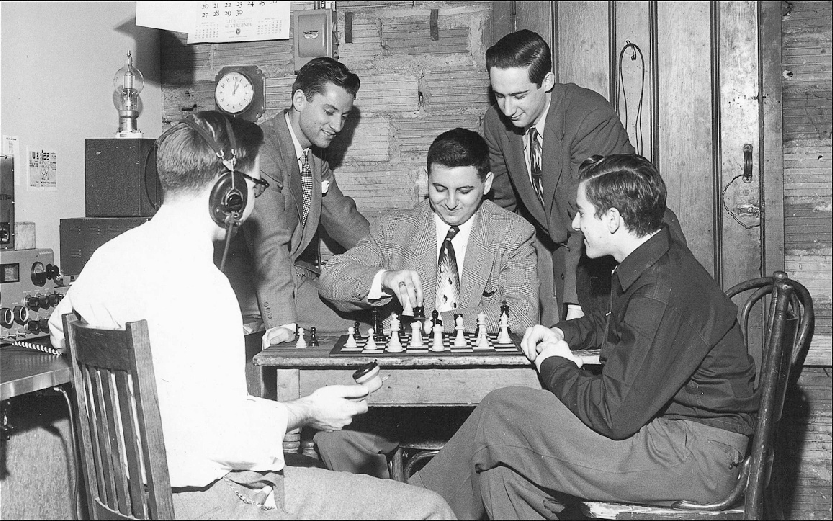
He became an International Master in 1958 at the age of 25 and, according to Felice, his peak FIDE rating was 2400 in 1969.
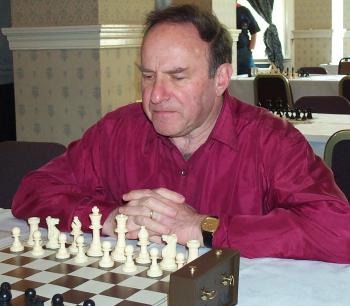
Much to his chagrin (we recommend you do not ask him about this!) James is famous for the “Sherwin slid the rook here with his pinky, as if to emphasize the cunning of this mysterious move” annotation in Game 1, “Too Little, Too Late” of My Sixty Memorable Games by Robert James Fischer (and game introductions by Larry Evans).
Since 1999 James has been a frequent entrant to English Rapidplay tournaments at Richmond and Golders Green and, in August 2019 in Torquay, aged 86, tied for first place in the Rapidplay event at the British Championships.
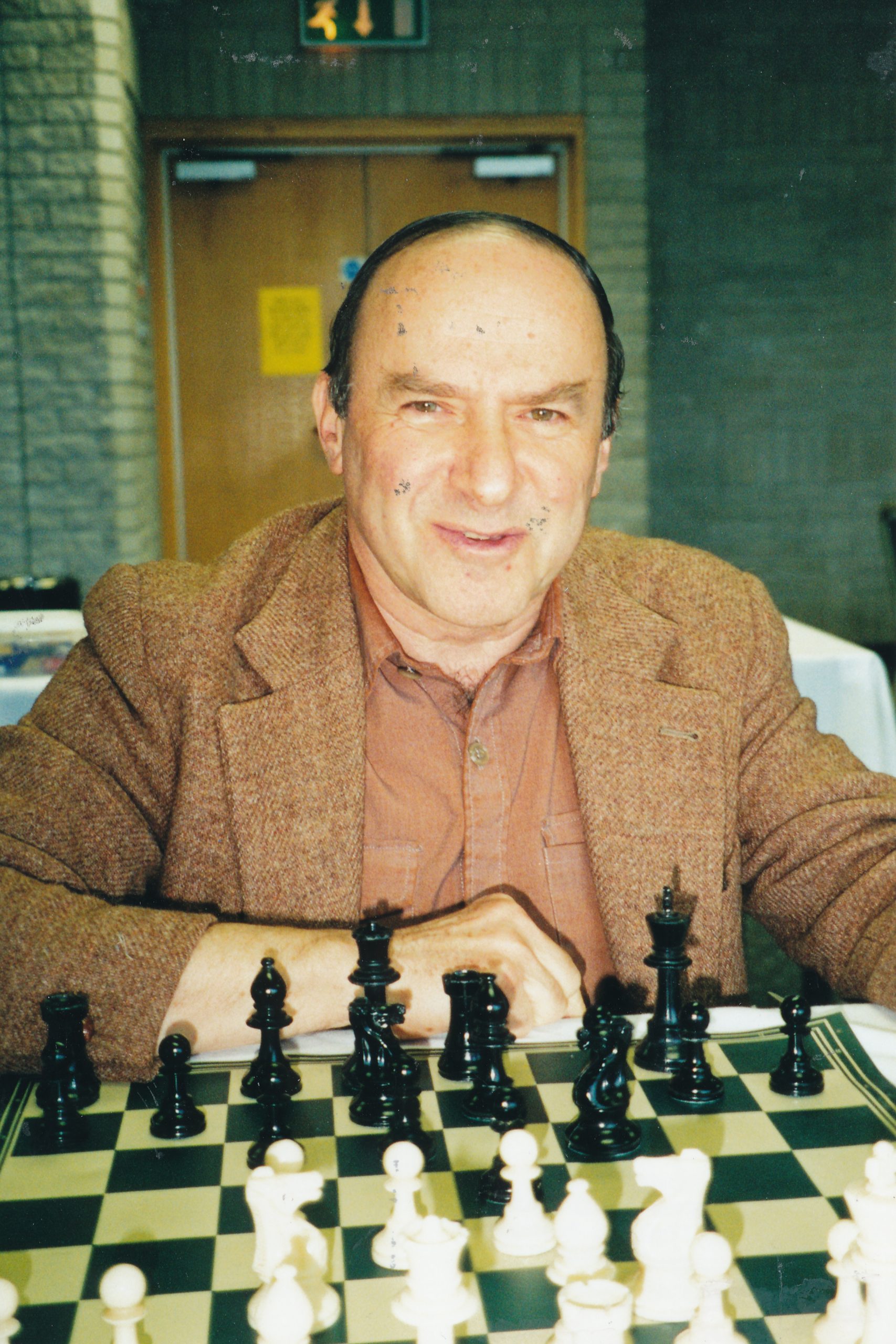
James is registered with the Wiltshire County Chess Association and since 2015 has played only rapidplay games rated by the ECF. He currently has a rating of 204D.
With the white pieces James plays 1.d4, 1.Nf3 and 1.e4 in that order of preference.
As the second player he essays the Sicilian Najdorf and the Grünfeld Defence.
He has plus scores against Donald Byrne, Robert Byrne, Herbert Seidman, Sidney Bernstein, George Kramer and Raymond Weinstein (amongst others). His score with Fischer was 0.5/8 (but don’t mention it!).
From Chessgames.com :
“James Terry Sherwin, born in New York, became an International Master in 1958. In 1961, he was Chairman of the USCF Rules Committee. He was the Executive Vice President of GAF Corporation who was the American Chess Foundation (ACF) President from 1979 to 1990. He took 5th place in the 1953 World Junior Championship. He tied for 1st place with Alexander Kevitz in the 1954-55 Manhattan Chess club championship. He took 17th place in the Portoroz Interzonal (1958). Sherwin finished in 3rd place twice in US chess championships (1957-58 and 1958-59). He won the first Eastern Open Chess Championship, held in Washington DC, in 1960.”
Here is an article featuring JTS from The Wiltshire Times
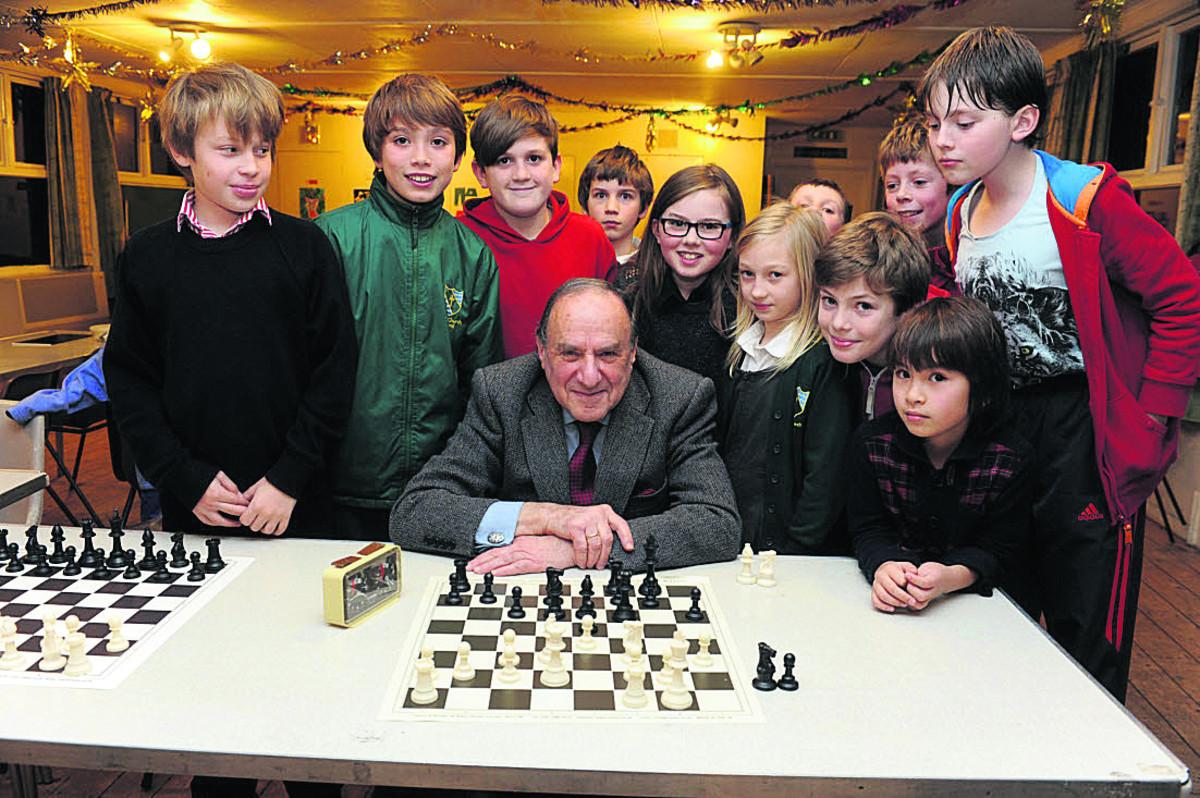
From Wikipedia :
“James Terry Sherwin (born October 25, 1933)[1] is an American corporate executive and International Master in chess.
Born in New York City[1] in 1933, Sherwin attended Stuyvesant High School, Columbia College (Phi Beta Kappa) and Columbia Law School. He graduated from the U.S. Coast Guard Academy Officer Candidate School in 1956 and later became a Lieutenant Commander. He is an attorney admitted to the New York and Supreme Court Bars. He joined GAF Corporation in 1960 serving in various legal and operational roles and eventually becoming its Chief Financial Officer. He was CFO at Triangle Industries from 1983 to 1984, rejoining GAF Corporation as Vice Chairman from 1985 to 1990.
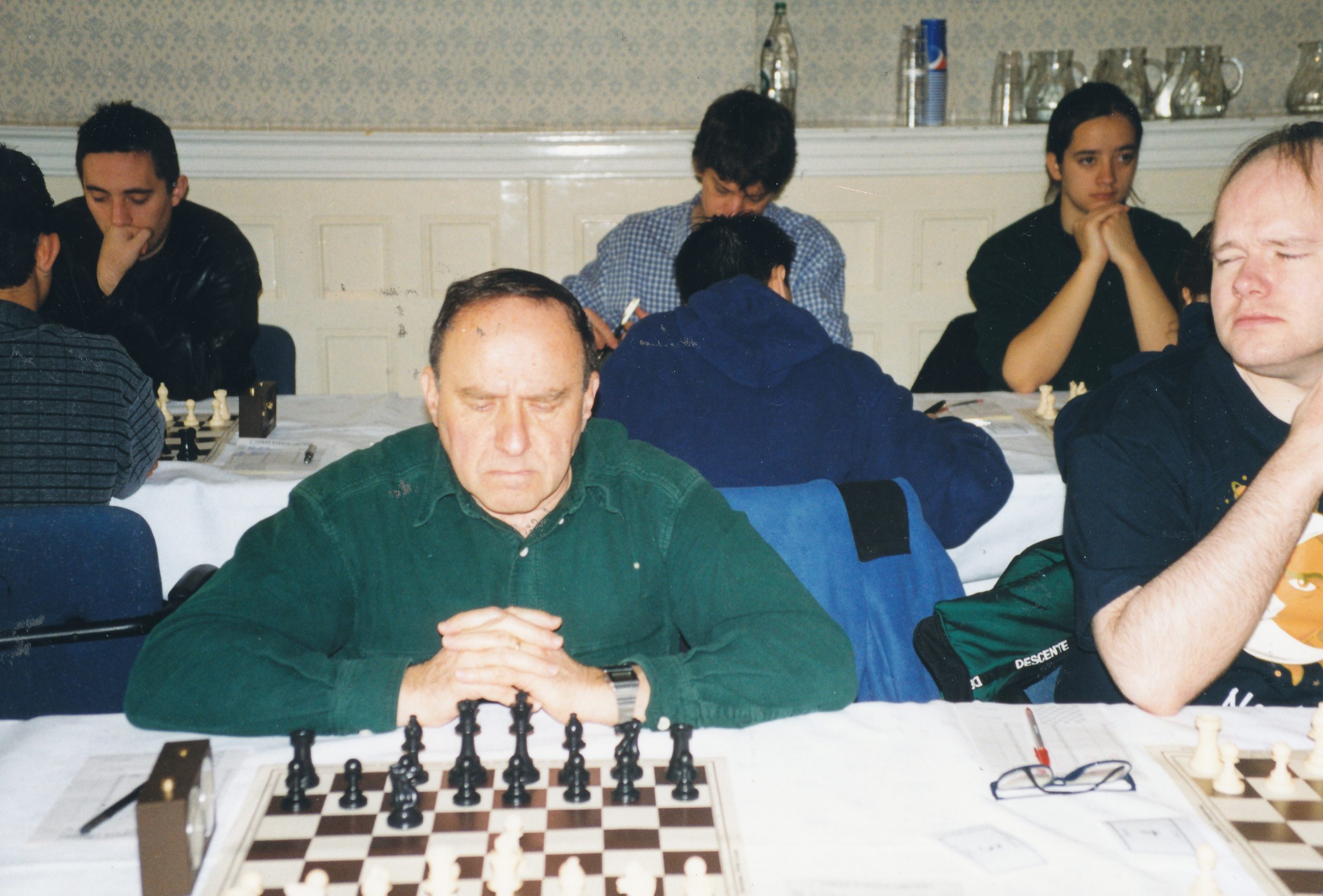
While at GAF, in 1988, he was indicted by the US Attorney for the Southern District of New York, Rudolph Giuliani, for stock manipulation in connection with the 1986 sale of stock owned by GAF.[2] He was convicted after three trials, but the conviction was reversed on appeal[3] and dismissed with prejudice.[4] In 1991 he was appointed Executive Vice President and Chief Financial Officer of Hunter Douglas N.V., a Dutch multinational company, in which capacity he served until 1999. Since then he has been a Director and an adviser to Hunter Douglas.
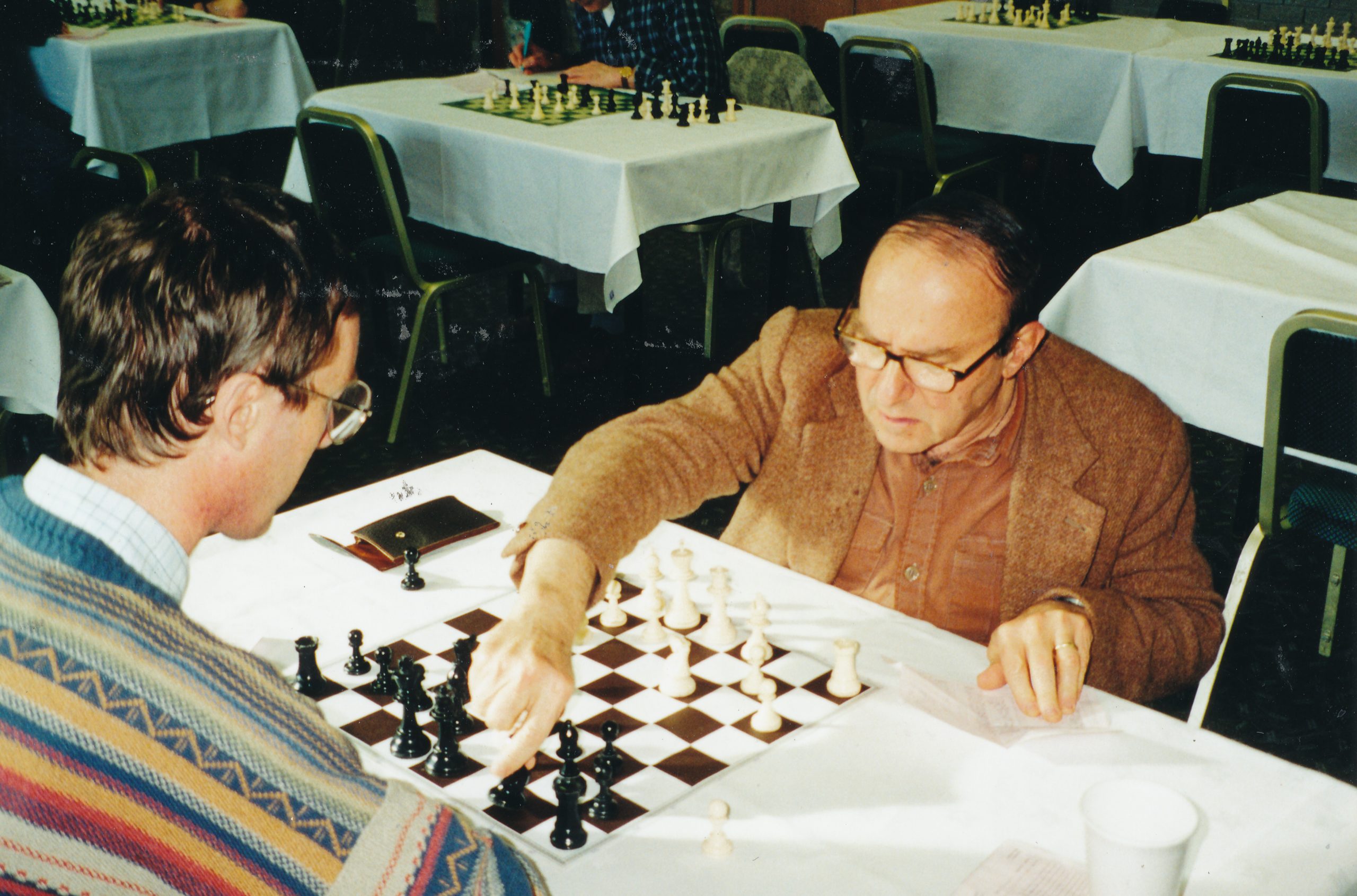
He is an Overseer of the International Rescue Committee and member of the Association of the Bar of the City of New York. He received an Honorary Doctor of Laws Degree from the University of Bath in December, 2007.”
“In chess, Sherwin finished third and tied for third in the US Chess Championship four times and tied for fourth three times.[5] He was Intercollegiate Champion and New York State Champion in 1951 and US Speed Champion in 1956–57 and 1959–60. He earned the International Master title in 1958.[1] He played in the Portorož Interzonal in 1958, which was part of the 1960 World Championship cycle. While he finished only 17th out of 21 players, he scored (+2–2=2) against the six players who qualified from the tournament to the Candidates tournament at Bled 1959. He is a previous President of the American Chess Foundation.
Sherwin resides with his wife, Hiroko, near Bath, United Kingdom.”
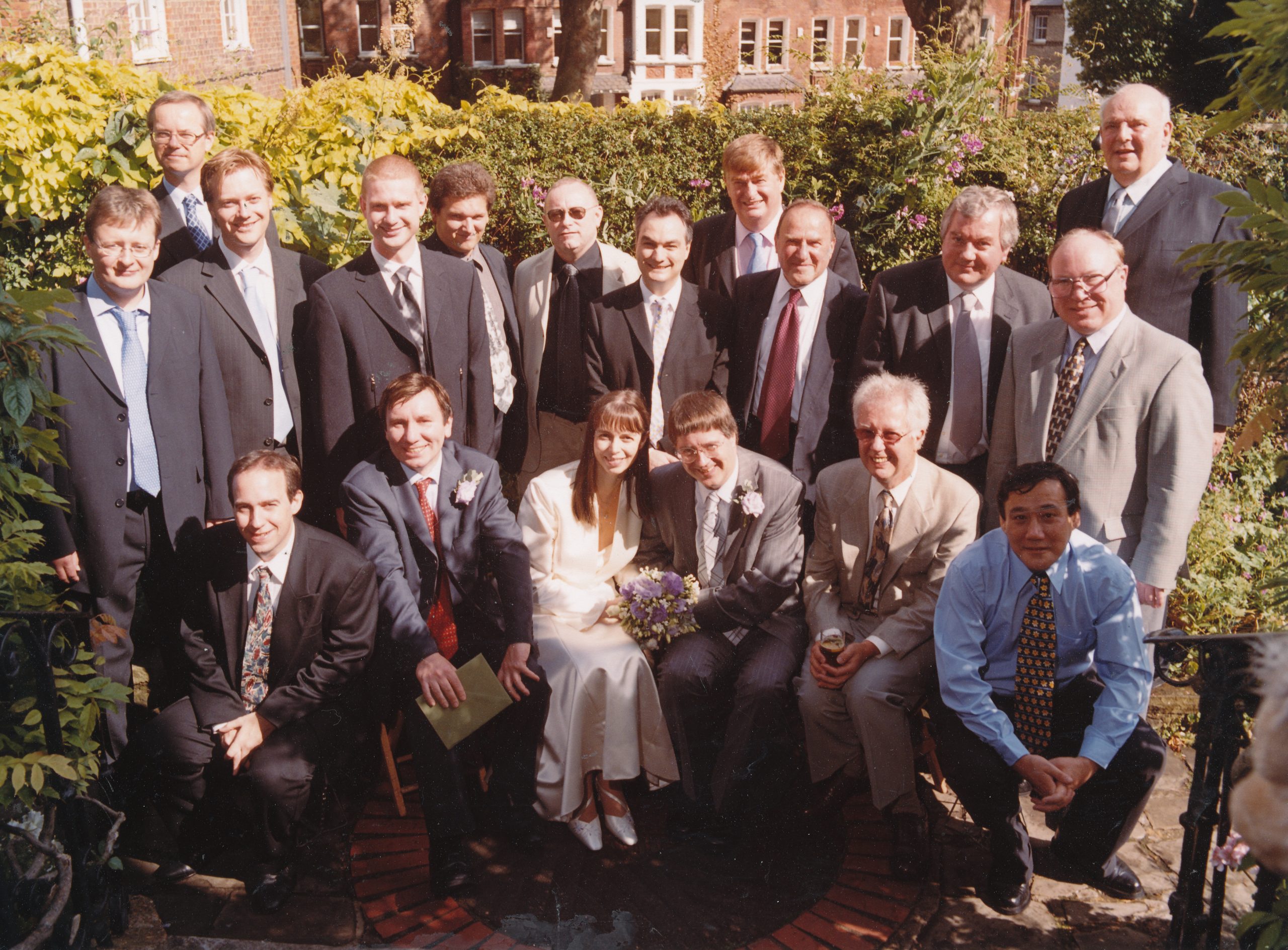
BCN remembers Charles Fox (09-xi-1866 11-x-1935)
Charles Masson Fox was born on Friday, November 9th 1866 in Falmouth, Cornwall. his father, Howard, was 29 and his mother, Olivia Blanche Orme, was 22. He had one brother and two sisters.
His sister Olivia Lloyd was born on 5 February 1868 in Falmouth, Cornwall, when Charles Masson was 1 year old. His sister Stella was born on 11 December 1876 in Falmouth, Cornwall, when Charles Masson was 10 years old. In 1881 he was living in Sherborne, Dorset. In 1901 he was once more living in Falmouth and his profession was that of a timber merchant. His brother Howard Orme died on 7 June 1921 in Falmouth, Cornwall. His father Howard passed away on 15 November 1922 in Cornwall. His mother Olivia Blanche passed away on 12 March 1930 in Falmouth, Cornwall, at the age of 85.
Sadly, neither Hooper & Whyld, Sunnucks or Golombek mention Fox in their works.
Here is an extensive article from the British Chess Problem Society (BCPS) written by CJ Feather
From Wikipedia :
“Charles Masson Fox (9 November 1866 – 11 October 1935) was a Cornish businessman who achieved international prominence in the world of chess problems and a place in the gay history of Edwardian England.
Masson Fox was born into a Quaker family (although he was not related to the Quakers’ founder George Fox) and was a cousin of the fraudulent sinologist Sir Edmund Backhouse, 2nd Baronet. Living throughout his life in the Cornish seaside town of Falmouth, Fox in the early decades of his life was a senior partner of his family’s timber firm, Fox Stanton & Company, and was also on the Board of Messrs G C Fox & Company, a long-established firm of shipping agents.
C.M.Fox’s gravestone at Budock Quaker Burial Ground
Fox is described by chess historian Thomas Rayner Dawson (1889–1951) as “a friendly man, kind, mellow, lovable, bringing peace and comfort and serene joy with him”. He was also a discreet but active homosexual. In 1909 he visited Venice with his friend James Cockerton, meeting the writer Frederick Rolfe and becoming the reluctant recipient of Rolfe’s famous Venice Letters, in which the gay subculture of Venice is vividly described.
In 1912–13 Fox was blackmailed by a woman who accused him of seducing her 16-year-old son. Eventually Fox reported the matter to the police and the woman was sent to prison for five years and her son for one year, with hard labour.[1] However, Fox was profoundly affected by the publicity surrounding the case, which was reported in detail in the local press. The predictable result of his courageous action was the destruction of his reputation, and the compromise of his business and social life in Falmouth.
Although he continued to live in Cornwall, the focus of his social life shifted to London, and in the last two decades of his life, Fox became prominent in the world of chess. He was elected President of the Cornwall Chess Association, played a prominent part in the development of the British Chess Problem Society, and is still renowned as one of the greatest ever exponents of fairy chess (chess problems with variations in the rules).”
From The Problemist Fairy Chess Supplement, 1933 :
What is the shortest game
ending in this position?

BCN remembers Charles Fox (09-xi-1866 11-x-1935)
Charles Masson Fox was born on Friday, November 9th 1866 in Falmouth, Cornwall. his father, Howard, was 29 and his mother, Olivia Blanche Orme, was 22. He had one brother and two sisters.
His sister Olivia Lloyd was born on 5 February 1868 in Falmouth, Cornwall, when Charles Masson was 1 year old. His sister Stella was born on 11 December 1876 in Falmouth, Cornwall, when Charles Masson was 10 years old. In 1881 he was living in Sherborne, Dorset. In 1901 he was once more living in Falmouth and his profession was that of a timber merchant. His brother Howard Orme died on 7 June 1921 in Falmouth, Cornwall. His father Howard passed away on 15 November 1922 in Cornwall. His mother Olivia Blanche passed away on 12 March 1930 in Falmouth, Cornwall, at the age of 85.
Sadly, neither Hooper & Whyld, Sunnucks or Golombek mention Fox in their works.
Here is an extensive article from the British Chess Problem Society (BCPS) written by CJ Feather
From Wikipedia :
“Charles Masson Fox (9 November 1866 – 11 October 1935) was a Cornish businessman who achieved international prominence in the world of chess problems and a place in the gay history of Edwardian England.
Masson Fox was born into a Quaker family (although he was not related to the Quakers’ founder George Fox) and was a cousin of the fraudulent sinologist Sir Edmund Backhouse, 2nd Baronet. Living throughout his life in the Cornish seaside town of Falmouth, Fox in the early decades of his life was a senior partner of his family’s timber firm, Fox Stanton & Company, and was also on the Board of Messrs G C Fox & Company, a long-established firm of shipping agents.
C.M.Fox’s gravestone at Budock Quaker Burial Ground
Fox is described by chess historian Thomas Rayner Dawson (1889–1951) as “a friendly man, kind, mellow, lovable, bringing peace and comfort and serene joy with him”. He was also a discreet but active homosexual. In 1909 he visited Venice with his friend James Cockerton, meeting the writer Frederick Rolfe and becoming the reluctant recipient of Rolfe’s famous Venice Letters, in which the gay subculture of Venice is vividly described.
In 1912–13 Fox was blackmailed by a woman who accused him of seducing her 16-year-old son. Eventually Fox reported the matter to the police and the woman was sent to prison for five years and her son for one year, with hard labour.[1] However, Fox was profoundly affected by the publicity surrounding the case, which was reported in detail in the local press. The predictable result of his courageous action was the destruction of his reputation, and the compromise of his business and social life in Falmouth.
Although he continued to live in Cornwall, the focus of his social life shifted to London, and in the last two decades of his life, Fox became prominent in the world of chess. He was elected President of the Cornwall Chess Association, played a prominent part in the development of the British Chess Problem Society, and is still renowned as one of the greatest ever exponents of fairy chess (chess problems with variations in the rules).”
From The Problemist Fairy Chess Supplement, 1933 :
What is the shortest game
ending in this position?

BCN remembers Charles Fox (09-xi-1866 11-x-1935)
Charles Masson Fox was born on Friday, November 9th 1866 in Falmouth, Cornwall. his father, Howard, was 29 and his mother, Olivia Blanche Orme, was 22. He had one brother and two sisters.
His sister Olivia Lloyd was born on 5 February 1868 in Falmouth, Cornwall, when Charles Masson was 1 year old. His sister Stella was born on 11 December 1876 in Falmouth, Cornwall, when Charles Masson was 10 years old. In 1881 he was living in Sherborne, Dorset. In 1901 he was once more living in Falmouth and his profession was that of a timber merchant. His brother Howard Orme died on 7 June 1921 in Falmouth, Cornwall. His father Howard passed away on 15 November 1922 in Cornwall. His mother Olivia Blanche passed away on 12 March 1930 in Falmouth, Cornwall, at the age of 85.
Sadly, neither Hooper & Whyld, Sunnucks or Golombek mention Fox in their works.
Here is an extensive article from the British Chess Problem Society (BCPS) written by CJ Feather
From Wikipedia :
“Charles Masson Fox (9 November 1866 – 11 October 1935) was a Cornish businessman who achieved international prominence in the world of chess problems and a place in the gay history of Edwardian England.
Masson Fox was born into a Quaker family (although he was not related to the Quakers’ founder George Fox) and was a cousin of the fraudulent sinologist Sir Edmund Backhouse, 2nd Baronet. Living throughout his life in the Cornish seaside town of Falmouth, Fox in the early decades of his life was a senior partner of his family’s timber firm, Fox Stanton & Company, and was also on the Board of Messrs G C Fox & Company, a long-established firm of shipping agents.
C.M.Fox’s gravestone at Budock Quaker Burial Ground
Fox is described by chess historian Thomas Rayner Dawson (1889–1951) as “a friendly man, kind, mellow, lovable, bringing peace and comfort and serene joy with him”. He was also a discreet but active homosexual. In 1909 he visited Venice with his friend James Cockerton, meeting the writer Frederick Rolfe and becoming the reluctant recipient of Rolfe’s famous Venice Letters, in which the gay subculture of Venice is vividly described.
In 1912–13 Fox was blackmailed by a woman who accused him of seducing her 16-year-old son. Eventually Fox reported the matter to the police and the woman was sent to prison for five years and her son for one year, with hard labour.[1] However, Fox was profoundly affected by the publicity surrounding the case, which was reported in detail in the local press. The predictable result of his courageous action was the destruction of his reputation, and the compromise of his business and social life in Falmouth.
Although he continued to live in Cornwall, the focus of his social life shifted to London, and in the last two decades of his life, Fox became prominent in the world of chess. He was elected President of the Cornwall Chess Association, played a prominent part in the development of the British Chess Problem Society, and is still renowned as one of the greatest ever exponents of fairy chess (chess problems with variations in the rules).”
From The Problemist Fairy Chess Supplement, 1933 :
What is the shortest game
ending in this position?
